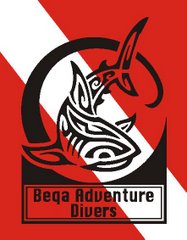
It's hard to know
where to begin with this latest "
Shark Opinion and Analysis" report coming out Russia's news agency.
Perhaps it's best just to post the whole sad thing.
Suffice to say 99% of this article is standard "Shark
hookum and
pseudo science" with much of the shark information presented seemingly gathered
sometime in and around 1977.So, without any further
explanation, let us present to you one of, if not
the worst, media biased shark reports of the year:
Have Sharks Gone Crazy?MOSCOW (RIA Novosti commentator Tatyana Sinitsyna) - It seems that sharks, those cold-blooded creatures, have declared a war on the human race.
It is unclear what has caused this war, but a likely suspect would be shark fin soup, which is a much-wanted luxury in the finest restaurants of the economically booming East Asia. It pains one to think how many sharks have been killed to make it.
But sharks may have become aggressive for a different reason - aberrations in Nature are very often linked to changes in the climate. The temperature of oceanic currents is changing, forcing sharks to change their migration routes. This is how Mexican experts explain the massive appearance of sharks off the shores of the Mexican state of Guerrero, where they attacked two windsurfers, and "took a bite" out of one of them....
Konstantin Zgurovsky, coordinator of the World Wildlife Fund's (WWF) Russia marine program, observed: "I don't think that sharks have become more aggressive. Of course, the changing current pattern could bring predators to new places. Or maybe the route of fish migration has changed, and they have followed it. But if Australians are used to sharks, in other places they are causing panic."
Apparently, this is what happened in Turkey. Dozens of beaches have been shut down and sea voyages prohibited off the western coast of Turkey because of sharks. Older residents say they have never seen so many of them there.
Some experts blame this strange conduct on oceanic acidification.
However, Dr. Vsevolod Belkovich, a biologist at the Russian Academy of Sciences' Institute of Oceanology, does not agree: "There is no simple explanation. It is not possible to say that the ocean environment has seriously changed. At the same time, stronger pollution directly affects all ocean organisms."
Dr. Belkovich thinks that man's increasing presence in the ocean is the most likely reason for the aberrations in shark behavior: "Navigation is developing; more and more people are swimming and diving. This is why they see sharks more often. The predators are getting nervous and irritated. But they are not so much protecting their environment as trying to take a bite. People are potential victims, more food - surely a delicacy."
Sharks have exactly the same attitude to anything edible. Well adapted to life, they are absolutely fearless. But aggression is caused not only by dauntless "courage," but also by permanent hunger. They are always on the go, and cover huge distances. They need food for energy. If they do not move, they will not receive enough oxygen through their gills - though the lazier ones are known to sleep on the bottom from time to time. Others act like nurses, looking after children.
Sharks charge at a trace of blood as a bull does at a red cloth. Confrontation with man is historic - people have been improving methods of hunting sharks and protecting themselves against them since they first went to sea. Sharks are extremely sensitive to smells in the water. Nowadays, "shark repellant" chemicals are diluted in the water to scare them off.
It would seem that sharks are almost ideal creatures - they have not changed in millions of years. Paradoxically, these frightening predators are themselves under threat because they are barbarously hunted to extinction. More than 20 species of sharks examined by the International Union for the Conservation of Nature (IUCN) Shark Specialist Group are about to die out.
























